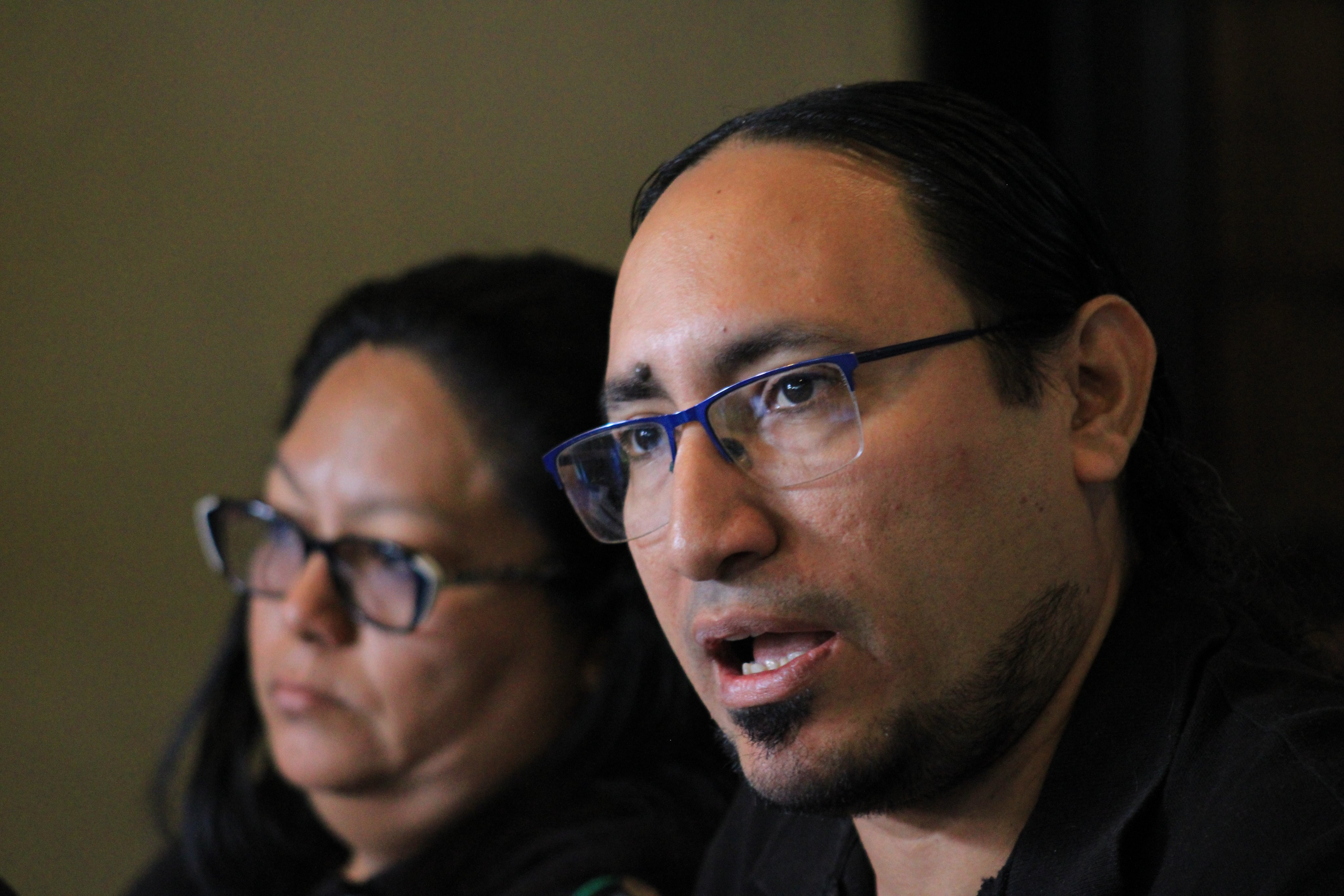The Alianza Nacional contra la Privatización del Agua (National Alliance Against Water Privatization) announced this Wednesday that they will file a claim of unconstitutionality against the General Mining Law, passed in December of last year.
The legal action will be filed next Monday, March 24, before the Sala de lo Constitucional (Constitutional Chamber) of the Corte Suprema de Justicia (CSJ) (Supreme Court of Justice (SCJ)), and will be presented along with signatures collected in affected communities and in coordination with sectors such as the Catholic Church.
The handover event will begin at Parque Cuscatlán at 9:00 a.m. on Monday and will end at the Supreme Court of Justice.
According to the alliance of organizations, this law puts the Salvadoran population’s access to water at risk, especially in the areas where mining projects are concentrated. “El Salvador cannot continue with the notion of trading its population’s water for economic growth,” the group’s statement declared during a press conference held as part of World Water Day.
According to the activists, the reactivation of metallic mining threatens water resources, as the areas of interest for this activity are located in the upper basin of the Lempa River, which supplies much of the country.
They assert that the law was passed without citizen consultation and without the state bodies in charge of the environment, agriculture, and water providing feedback on its potential impacts.
“Metallic mining represents a real threat to the human right to water and to the country’s ecosystems,” alliance spokespersons noted, reiterating their call for the population to protest this extractive activity.
Data presented by the organization indicates that around 50% of the Salvadoran population faces water insecurity, while more than 1.3 million people do not have guaranteed access to drinking water and depend on wells or purchases from water trucks.
Among the demands raised by the signing organizations is the enforcement of the Ley General de Recursos Hídricos (General Water Resources Law), passed in 2021, in areas such as support for water boards and the sustainable management of watersheds.
They also demand the elimination of the classification of information about water and sanitation projects, as well as the inclusion of mechanisms for citizen participation in decision-making.
Organizaciones presentarán demanda de inconstitucionalidad por ley de minería en El Salvador
La Alianza Nacional contra la Privatización del Agua anunció este miércoles que presentarán una demanda de inconstitucionalidad contra la Ley General de Minería, aprobada en diciembre del año pasado.
La acción legal será interpuesta el próximo lunes 24 de marzo ante la Sala de lo Constitucional, de la Corte Suprema de Justicia (CSJ) y se presentará junto con firmas recolectadas en comunidades afectadas y en coordinación con sectores como la iglesia católica.
La actividad de entrega partirá desde el Parque Cuscatlán a las 9:00 de la mañana del lunes y culminará en la Corte Suprema de Justicia.
Según la alianza de organizaciones, esta ley pone en riesgo el acceso al agua de la población salvadoreña, especialmente en las zonas donde se concentran proyectos mineros. “El Salvador no puede continuar con la apuesta de cambiar el crecimiento económico por el agua de su población”, afirma el comunicado que el colectivo compartió durante una conferencia de prensa en el marco del Día Mundial del Agua.
De acuerdo con los activistas, la reactivación de la minería metálica amenaza los recursos hídricos, ya que las áreas de interés para esta actividad se encuentran en la cuenca alta del río Lempa, que abastece a gran parte del país.
Aseguran que la ley fue aprobada sin consulta ciudadana y sin que las instancias estatales encargadas del medio ambiente, la agricultura y el agua emitieran opiniones sobre sus posibles impactos.
“La minería metálica representa una amenaza real al derecho humano al agua y a los ecosistemas del país”, señalaron voceros de la alianza, quienes reiteraron su llamado a la población a manifestarse contra esta actividad extractiva.
Datos presentados por la organización indican que cerca del 50 % de la población salvadoreña enfrenta inseguridad hídrica, mientras que más de 1.3 millones de personas no tienen acceso garantizado al agua potable y dependen de pozos o de la compra a camiones cisterna.
Entre las demandas planteadas por las organizaciones firmantes se incluye el cumplimiento de la Ley General de Recursos Hídricos, aprobada en 2021, en aspectos como el apoyo a las juntas de agua y la gestión sostenible de cuencas hidrográficas.
Asimismo, exigen la eliminación de la reserva de información sobre proyectos relacionados con el agua y el saneamiento, y la inclusión de mecanismos de participación ciudadana en la toma de decisiones.

